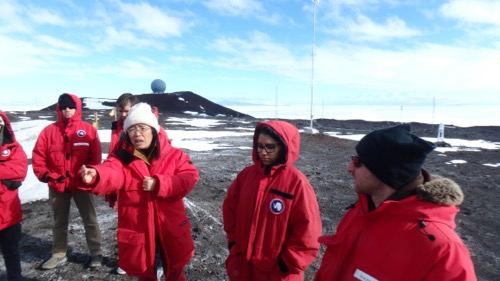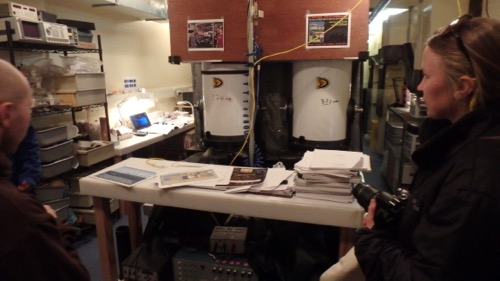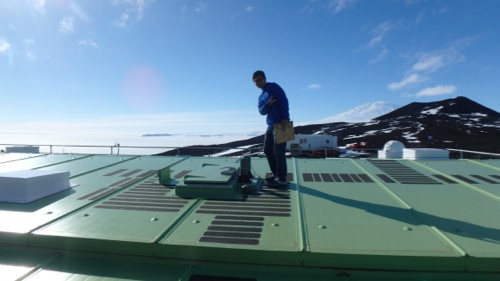We were invited to visit the Light Detection and Ranging (LIDAR) facility on Arrival Heights by Xinzhao Chu today. Arrival Heights is an important place for atmospheric research. LIDAR is just one of the experiments happening there. Dr. Chu and her student Zhengyu (Harry) Hua showed us the LIDAR system that they use to make measurements of the mesosphere.

LIDAR
The LIDAR system in McMurdo uses two separate lasers and telescopes to make measurements. Each laser uses a different wavelength of light (372 nm and 374 nm). The lasers hit iron particles that are in the mesosphere and the light that bounces back is collected and recorded. LIDAR in Antarctica is used to study the mesosphere which is a layer of the atmosphere that is poorly understood because it is above the reach of aircraft and balloons but below the level of orbiting spacecraft.

Studying the Mesosphere
Measurements of the mesosphere can only be made when the sky is clear. Even with clear skies there is some noise in the measurements. During the AustralRelating to the southern hemisphere. The austral summer is from December to February and the austral winter is from June to August. winter there is less noise so it is an ideal time for Dr. Chu and her students to take measurements. Harry will be overwintering at the station this year for what has become a rite of passage for Dr. Chu's students. He will be one of only about 150 people overwintering at McMurdo and he will be one of the only scientists in that group.

Scientists and Engineers
Dr. Chu and her students need to be scientists and also engineers. They have to be able to understand the equipment they are using and be able to make repairs and adjustments as necessary. As the only overwintering member of his team, Harry will need to be able to diagnose any problems and perform the necessary repairs on the LIDAR system by himself.

Good Luck Harry
Harry just celebrated his 23rd Birthday on Monday; there was a small party for him in the coffee house. Overwintering in Antarctica will be an interesting way for him to start his 24th year. I am sure he will be lonely at times, maybe often, but I am also a little bit envious of him. It would be amazing to experience the polar winter. I imagine the night sky is incredible. The air in Antarctica is so clear with no air pollution and when the sun sets there will be very little light pollution. I would guess Harry will have some amazing views of the night sky and the aurora, when it's not too cold out to look.


Comments